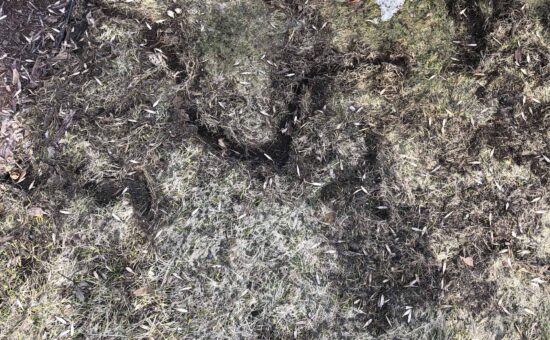Vole Pest Control Services in Minneapolis & St. Paul
You don’t see voles tearing up your lawn and garden, but you know they’re there, and you want them gone. With Rainbow Pest Experts’ Vole Service, those rodents will be out of your yard and your life.
You’ve invested countless hours and many resources into maintaining a green and lush lawn. Discovering there’s something running amuck in your yard, creating disfiguring networks of raised mounds of soil and dead grass is discouraging. Don’t despair! With Rainbow Pest Experts’ vole services, we can provide you with a one-time or recurring service to get rid of them. Contact our experts to schedule your consultation today!

What can you expect from our vole control service?
Like many other outdoor Minnesota pests, voles can be potentially challenging to get rid of on your own because they can come in from neighboring yards and are rapid breeders. With our vole service, our experts will:
- Conduct a thorough inspection of the exterior of your home to determine where the voles are traveling on your property and where they are seeking shelter.
- Install tamper-proof bait stations with rodenticide bait that lock shut and require a special key to open. The bait is secured to a rod or placed in a reservoir so it can’t be shaken out.
We offer our vole treatment as a one-time service, or as a recurring service for properties with extensive, ongoing vole infestations.
Once your vole issues have been resolved, Rainbow Lawncare can help restore your yard to its happy, healthy state with a wide range of services.
Why choose the pest experts from Rainbow Pest Experts?
At Rainbow Pest Experts, we pride ourselves on providing the highest quality pest control in the Twin Cities. We offer 100% customer satisfaction and warranties on all of our services. Beginning with your first phone call answered by a highly trained pest expert, we will find the solution that’s right for you.
Once on-site, our pest expert will spend the time needed to thoroughly inspect all of the key areas of your Minnesota home and yard to get to the root of the problem. Your pest expert will explain what was found during the inspection. We review all factors concerning the safety of you and your family. Afterward, our pest expert will make recommendations and provide proven science-based solutions to best solve your problem.
Additional frequently asked questions about fall pests
Voles are primarily herbivores, eating various plants, bulbs, roots, tubers, tree bark, and roots in the fall and winter. These critters are more likely to damage your lawn and garden plants than harm you. However, like most rodents, voles are host to various disease-carrying pests such as fleas, mites, and ticks. The insects they carry can transmit diseases that could potentially be harmful to you, your family, and your pets.
Voles are highly prolific reproducers, active 24 hours a day, year-round. This makes them quite challenging to control as a do-it-yourself project, especially if there is a large population established. There are some steps you can take to assist in minimizing the population of voles in your yard:
- Keep grass mowed and bushes trimmed.
- Remove wood debris that provides hiding places for voles.
- Keep the ground around bird feeders clean or remove bird feeders.
In most cases, activity from voles will fill in if you have a well-established lawn and the damage is minor. If the damage is severe, you may need seeding or lawn restoration to re-establish your turf.
Voles typically tunnel on the surface level of grass under snow, while moles tunnel underground to establish their homes and feeding tunnels. Vole damage often reveals itself after snowmelt in the form of S-shaped tracks along the turf surface, The tracks generally fill in during spring green-up. Mole damage presents all season as tracks of dead turf and holes in the turf. These dead sections may appear raised and are generally spongy-feeling and collapsable when stepped on. Mole damage may require more extensive lawn restoration.
Successfully trapping moles involves an understanding of the their habits. As your understanding of a mole’s habits diminishes, so will your chances of successfully getting rid of them from your yard. Check out our blog on mole diagnosing and treatment to maximize your treatment efficacy. When treating moles yourself or via a professional, remember that there is a caveat to baiting and trapping moles: no method prevents new moles from entering your yard.
Schedule your vole service today!




